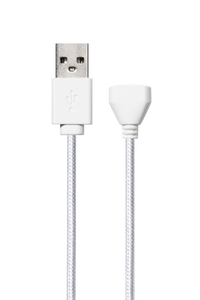Before she came out as a trans woman, Emily briefly mentioned to her wife Libby that she had “a fascination with femininity.” Libby replied, “Well, I could never be married to a woman.” It sent a clear message to Emily: She would have to stay in the closet in order to stay married.
“What I didn't account for was that while I kept changing,” Emily says, “Libby did, too. She was not a static point in my memory, and her views on things would shift and warp with time.” By the time Emily was ready to come out, “I knew that even if our marriage didn't survive, our friendship would. That was huge for me. I couldn't imagine a life without her in it in some capacity.”
Even so, Libby was still “shell-shocked” when Emily finally came out. “I was sure that my life was over,” Libby says. “Which it was, in a way. But what the emotion of the moment overwhelmed was the reality that there are so many times in our life when the life that we know ends and a new one, maybe even a better one, begins.” Thirty-six hours later, Libby realized Emily was the same person she fell in love with when they were both 18, and now the couple, both 38, have been married for 16 years.
“That person hadn't changed,” Libby says of Emily. “Not really. And from that point on, I was on board, even as I knew the weeks and months and years to come would be a roller-coaster of conflicting emotions.”
It used to be assumed that coming out as queer or trans to a longterm partner was an automatic death sentence for the relationship. A
2007 study found that two-thirds of marriages ended within two years of a spouse’s coming out as LGBTQ. The
2015 US Transgender Survey from the National Center for Transgender Equality found that 10%of participants reported relationships ending after coming out, particularly for trans women ages 44 and up.
It’s the same person. It’s a different shell. It’s a different presentation, but it's the same inside.
Fortunately, things are changing.
Dancing with the Stars champion Julianne Hough recently told
Women’s Health that her marriage to NHL star Brooks Laich has grown stronger since she told him she’s “not straight.” And
New York Times columnist Jennifer Finney Boylan is
still married to her wife of 31 years: “12 years as husband and wife, 19 as wife and wife.”
“Still All Of These Pieces That I Love”
I spoke with my friends Maddy, 42, and Julie, 54, at a St. Louis convention last month about how their marriage survived Maddy’s coming out as transgender. Maddy was so sure Julie was going to
file for a divorce after coming out that she had a storage locker already filled with her most prized possessions. Fortunately Julie stayed, and the Minnesota couple has now been married for 23 years.
Julie says having their son Drake come out as trans, shortly before Maddy did, made it easier. “I already had to process the fact that, ‘No, this is the person that I love,’” she told me. “It’s the same person. It’s a different shell. It’s a different presentation, but it's the same inside.”
They said that not only did the relationship survive Maddy’s coming out, it also grew stronger. “I don’t know if it's because I’m a different person,” said Maddy, or “if it’s because I’m just more honest with myself and so I’m happier with myself, and I don’t feel like I’m hiding things.”
“But you’re not really a different person,” Julie interjected. “I mean, you’re still Maddy inside. You still tell horrible puns, and you’re still a science nerd, and you’re still all of these pieces that I love.”
“Just Pick a Side”
My friend Ollie, 29, tells me over Facebook Messenger about the first time a girl asked them out. “She said if we were going to date I had to choose if I liked girls or boys,” Ollie says. “It couldn’t be both or she’d be nervous that I’d leave her for a boy.” Ollie’s experience is not unique; to this day there’s a common myth that bisexuals
cannot be faithful, and that they will eventually leave their current partner for someone of a different gender. Even my first boyfriend—the first man I dated shortly after coming out as bisexual—once told me he was going to “end
addiction to pussy.”
Last year several bisexual women shared their stories on a Reddit thread of what happened when they came out to their partners, and the stories are varied. While most of them were positive, some reported having to deal with jealous boyfriends. “My ex banned me from having any friends at all because of my bi/pansexuality,” said one woman. “He was abusive, and I stopped seeing all of them because he would beat me up.”
Fortunately Ollie’s current partner Matt was perfectly fine with their sexual orientation. Their gender identity, though, was a different story. “We almost broke up but it wasn’t nasty,” says Ollie, who identifies as non-binary. “He’s attracted to women so I didn’t really blame him. But he really loves me so he ended up being supportive in the end even though he didn’t totally understand.”
This time, we're both entering the relationship as the most genuine versions of ourselves.
Unfortunately, some relationships do end when a partner comes out as trans because a cis partner is only attracted to one gender, and their trans partner is not that gender. And there are still some people in heterosexual relationships who aren’t able to admit, either to themselves or to their partners, that they’re queer. Thankfully, those examples are becoming more rare as people’s ideas of gender identity and sexual orientation expand, and as it becomes less socially and economically necessary to stay in the closet.
“An Honest Foundation”
Libby and Emily say their relationship after Emily came out was like starting a new relationship. “And like all new relationships, there are some bumps in the road as we get used to each other and negotiate how to move through life together,” Libby says. But their new relationship is built on a rock-solid foundation that our old relationship could never compare to. "Because this time, we're both entering it as the most genuine versions of ourselves that we've been to date.”
When one of the people in a partnership is “just an approximation of themselves,” Emily says, “it will never be as strong as when you're both the people you actually are."
“So much of marriage is having an honest foundation,” Emily adds, “to the degree that after I came out to myself, I knew I had to tell Libby as soon as I possibly could, because I didn't want her to be married to a lie.” That’s not to say their marriage in general was a lie, Emily clarifies, but that her life pre-transitioning was a lie. “Being considerate, being helpful, being loving, being understanding toward each other,” she says, “is easier now because we’re both on honest and equal footing.”
Julie now constantly explains their relationship to people, which has also made their marriage stronger. Some people ask why Julie and Maddy are still together, while others ask if Maddy has had “the surgery” yet. “I didn’t realize at the time what I was asking her to do,” Maddy says. “And I don’t think you realized at the time. You maybe had more of an inkling than I did.”
“Breathe”
When asked for advice to trans or queer people coming out to their spouses, Maddy says they should be ready to let the other person go if they so choose to. “Give them the agency to make that decision,” she says, “and the understanding that you're changing a really base dynamic of that relationship, and that may not be what they signed up for.” That way, “even if you break up, you can still remain really good friends.”
Emily agrees. A breakup “might seem devastating in the moment, but finding a way to preserve your connection in any form can be so powerful. Trust in yourself, and trust in your partner, and see where it all goes.”
For people who are just finding out their spouse is a different gender or sexual orientation than they identified as previously, Libby says, “Breathe. Both of your feelings are valid and understandable. Build yourself a support system as soon as you possible can, from trusted people or strangers who can see the issues clearly but have a gentle enough heart to not blame your partner for what they're going through. Look for LGBTQ+ resources in your area or online. But mostly, breathe. You will survive this.”




























